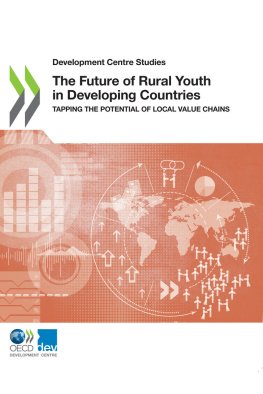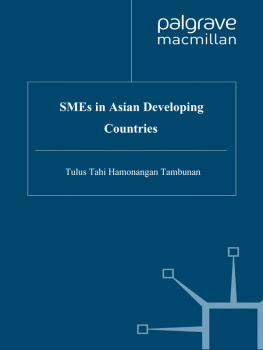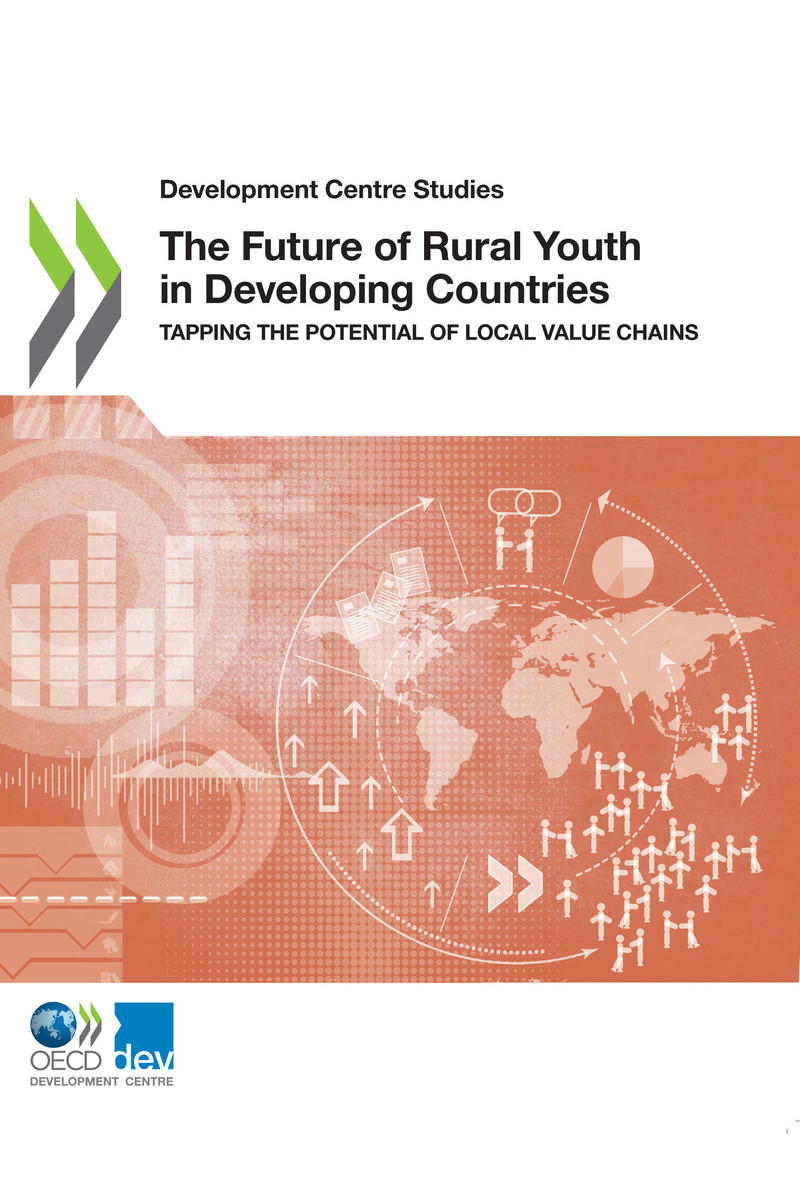Development Centre Studies
The Future of Rural Youth in Developing Countries Tapping the Potential of Local Value Chains
Please cite this publication as:
OECD (2018), The Future of Rural Youth in Developing Countries: Tapping the Potential of Local Value Chains , Development Centre Studies, OECD Publishing, Paris.
http://dx.doi.org/10.1787/9789264298521-en
Metadata, Legal and Rights
ISBN: 978-92-64-29851-4 (print) - 978-92-64-29852-1 (pdf) - 978-92-64-30202-0 (HTML) - 978-92-64-30201-3 (epub)
DOI: http://dx.doi.org/10.1787/9789264298521-en
Series: Development Centre Studies
ISSN: 1563-4302 (print) - 1990-0295 (online)
This work is published under the responsibility of the Secretary-General of the OECD. The opinions expressed and arguments employed herein do not necessarily reflect the official views of OECD member countries.
This document, as well as any data and any map included herein, are without prejudice to the status of or sovereignty over any territory, to the delimitation of international frontiers and boundaries and to the name of any territory, city or area.
The statistical data for Israel are supplied by and under the responsibility of the relevant Israeli authorities. The use of such data by the OECD is without prejudice to the status of the Golan Heights, East Jerusalem and Israeli settlements in the West Bank under the terms of international law.
Photo credits: Cover design by the OECD Development Centre.
Corrigenda to OECD publications may be found on line at: www.oecd.org/publishing/corrigenda .
OECD 2018
You can copy, download or print OECD content for your own use, and you can include excerpts from OECD publications, databases and multimedia products in your own documents, presentations, blogs, websites and teaching materials, provided that suitable acknowledgement of OECD as source and copyright owner is given. All requests for public or commercial use and translation rights should be submitted to .
Foreword
A large rural youth population and a growing domestic demand for diversified foods in many developing countries represent a unique opportunity to advance towards the three objectives of decent job creation for youth, food security and sustainable production, as spelled out in Agenda 2030. Yet, challenges to seizing this opportunity remain. Across the developing world, rural youth are turning their backs on small-scale agriculture. The gap between rural youth job aspirations and the reality of the labour market is widening. Under-development in rural areas makes it difficult to tap into the potential for increasing and changing domestic consumption needs and providing young people with decent jobs and living standards.
This study places rural youth at the centre of the analysis. It aims to sharpen our understanding of who are the rural youth; what is the nature of their job aspirations; which untapped opportunities exist for them; what are youth-sensitive approaches within agricultural value chains; and what can policy makers do to create an enabling environment for decent and attractive jobs for rural youth. A key message is that integrating rural youth into productive and environmentally sustainable agri-food activities rooted in inclusive domestic food systems may well be one of the few lasting solutions to the current rural youth employment challenge. For this to happen, actions need to be taken today.
The findings contribute to the work of the OECD Development Centre on building more cohesive societies and helping countries to identify emerging issues and find innovative solutions to address social challenges. The research was undertaken as part of the Youth Inclusion Project, co-funded by the European Union, to provide evidence for the policy dialogue on youth well-being in developing and emerging countries. It is based on the harmonisation and analysis of data from 24 developing countries in Africa, Asia, Europe and Latin America, as well as a review of development projects aimed at integrating youth into local agricultural value chains.
This work adds to the policy dialogue on rural youth employment in three important ways: First, it constitutes an unprecedented effort to understand the multiple profiles of rural youth and their job aspirations. Second, it takes stock of current approaches to integrating rural youth, especially disadvantaged youth, into local agricultural value chains. Finally, it proposes a broad policy vision to harness the potential of rural youth through vibrant, sustainable and inclusive domestic food systems anchored in local value chains. We hope that this study will stimulate discussion among development stakeholders to bring about environmentally sustainable food systems that contribute to food security and work for the large number of rural youth in developing countries.
Mario Pezzini
Director, OECD Development Centre and Special Advisor to the OECD Secretary-General on Development
Acknowledgements
The Future of Rural Youth: Tapping the Potential of Local Value Chains in Developing Countries was prepared by the OECD Development Centre for the European Union-OECD Youth Inclusion Project under the overall guidance of Ji-Yeun Rim, Co-ordinator; Alexandre Kolev, Head of the Social Cohesion Unit; Naoko Ueda, Deputy Director; and Mario Pezzini, Director of the Development Centre, Organisation for Economic Co-operation and Development (OECD). The report was drafted by Alexandre Kolev (OECD); Maria Lee, Independent Expert; Ji-Yeun Rim (OECD); and Pablo Suarez Robles, Economist (OECD) in close collaboration with Bernd Seiffert, Local Institutions and Rural Livelihoods Officer (Food and Agriculture Organization of the United Nations [FAO]). Statistical and research assistance was provided by Toma Savitki, Policy Analyst (OECD).
The report benefited from field examples and technical inputs from international organisations, research institutes and non-governmental organisations with experience in mainstreaming youth in agricultural value chain projects and programmes. The contributions from the following individuals are gratefully acknowledged: Bernd Seiffert, Francesca Dalla Valle, Ileana Grandelis, Ajuaye Sigalla, Nomathemba Mhlanga, David Neven, Benjamin Doin, Oumar Syll, Cristina Rapone, Denis Herbel, and Boris Gandon from the FAO; Mattia Prayer Galletti, Elena Pietschmann, Ben Odoemena, Ibifuro Ibeakuzie, Lucia Di Troia, and Khadidja Doucoure from the International Fund for Agricultural Development (IFAD); Charlotte Goemans from the International Labour Organization (ILO) in Tanzania; Umadevi Swaminathan and Smita Bhatnagar from the Self Employed Womens Association (SEWA); Ken Lohento from the Technical Centre for Agricultural and Rural Cooperation ACP-EU (CTA); Christian Mersmann from the Global Donor Platform on Rural Development; Christophe Yvetot and Eduin Matta Castillo from the United Nations Industrial Development Organization (UNIDO); and Lucia Wegner from the Royal Tropical Institute (KIT).
The final report benefited from technical comments from Adrien Lorenceau, Arthur Minsat, Jan Rielaender and Vicente Ruiz, OECD Development Centre; Maria Rosa De Paolis, European Commission; Bernd Seiffert, FAO; and Mattia Prayer Galletti, IFAD and Christophe Yvetot and Eduin Matta Castillo, UNIDO.

